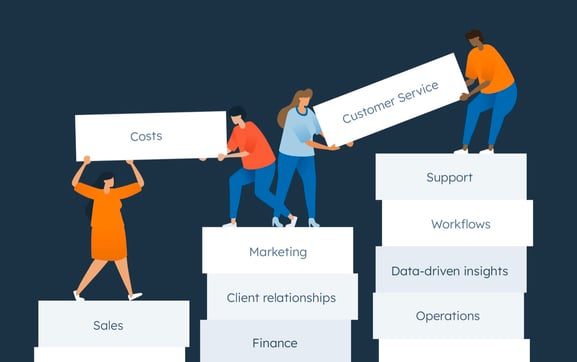The last two years has seen U.S. agriculture has been rocked by labor shortages, global supply chain shocks and fertilizer shortages.
Yet even before these challenges, America’s agriculture industry continues to suffer from the impact of over-grazed, arid land, along with the sustained damage wrought by climate change.
Today, 40% of the continental United States is at risk of desertification. Scientists now predict that much of America’s over-irrigated land will be unable to mend naturally for another 100 years.
In fact, the agriculture industry remains one of the largest emitters of greenhouse gases, making up 11% of America’s total, a 6% increase since 1990. Similarly, the agriculture sector is one of the major users of ground and surface water in the United States, accounting for 42% of the nation’s total freshwater withdrawals in 2015.
Without a fundamental rethink in how we get food from our farms to our forks, the future of the American agriculture industry, and food security, will remain in question.
In order to tackle the looming crisis facing America’s agricultural industry, innovative technology must be at the forefront of our strategy. That’s what leading technology services provider Best MK seeks to do.
The company has set its sights on the creation of a more sustainable, efficient and space-saving approach towards both carbon removal and food production.
Kommareddi is using cutting-edge, robotic technology to create a more sustainable future for the American agriculture industry. The company is now in the development of a new system, similar to hydroponic plant management, where food will be grown in specialized pods without having to use soil or fertilizer, an approach that would help save on space, and cut back on the traditional, fossil-fuel produced fertilizer.
Kommareddi explained that the proposed system will take on an all-natural approach to plant growing, using only water and bacterial growth to aid in its production. The goal of the initiative is to be able to come up with a high-yielding system that doesn’t deplete the land, whilst removing the maximum amount of carbon from the air as possible.
He further explains that instead of burying the carbon, the proposed system aims to produce food out of it. “It will all be self-contained in a pod. Initially, we are looking to propagate root-based crops like carrots, lettuce, tomatoes, rice and wheat. Specially designed robotic systems will be tapped to harvest the vegetables, package them and then send them off for delivery.”
Funding for the project is expected to come from a grant that they applied for under the Small Business Innovation Research (SBIR) initiative, an American government program coordinated by the Small Business Administration and intended to help certain small businesses conduct research and development (R&D).
Since its creation in 2018, Best MK has successfully offered a wide array of services to the public, providing custom cloud installs, blockchain (and web3), edtech, drones, 5G connectivity, AI/ML, AR/VR, video streaming, gaming, to web, mobile, and desktop applications. Company owner Mahesh Kommareddi recalls that Best MK got its start after working in the software industry for almost two decades.

“We are looking at the immense potential of using robotics to help in the development of agriculture. Best MK wants to live up to its full potential by creating agricultural tools that can protect America’s farmlands without damaging the environment. We remain steadfast in our commitment to help humanity and educate the communities around us,” concluded Kommareddi.





More Stories
The Digital Graveyard in Your Drawer: How Singapore’s Device Buyback Revolution Is Rescuing Millions of Forgotten Gadgets
Shri Ram Global School the Finest Online Learning School in Greater Noida West
What Scriptless Test Automation Means for Software Testing Services Providers